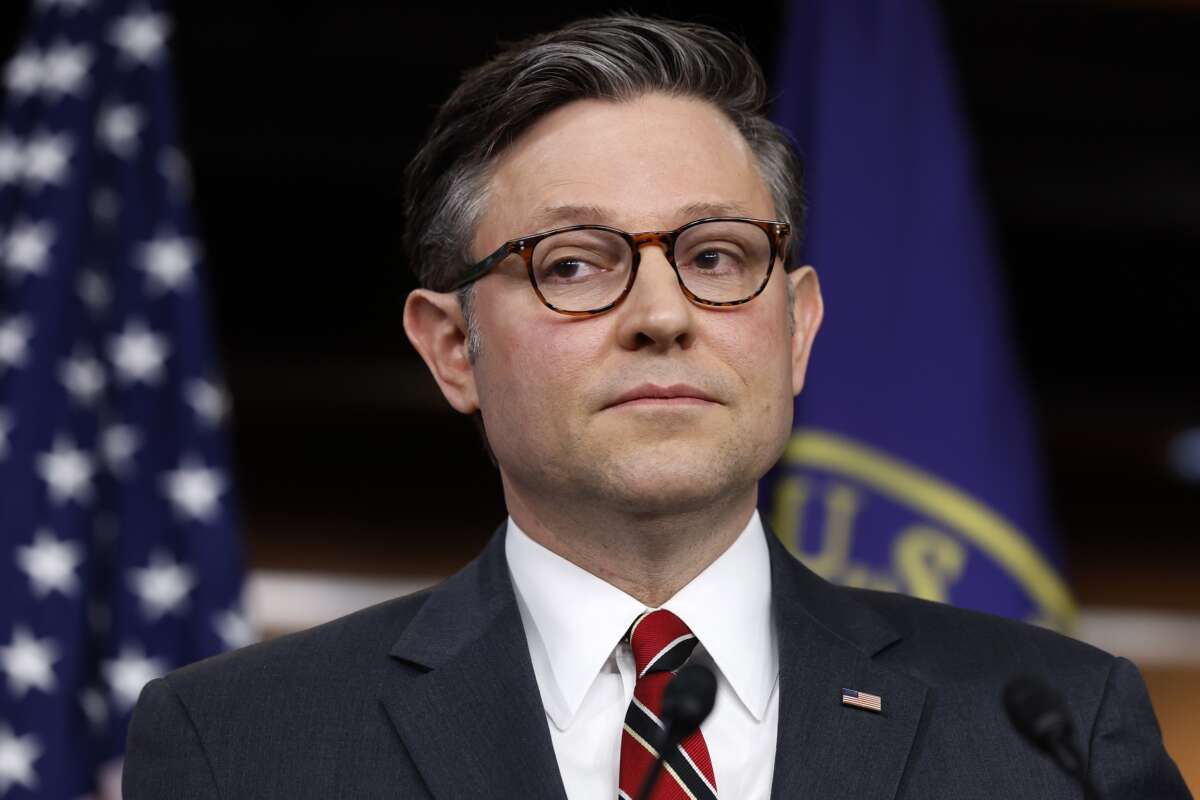Speaker of the House of Representatives Mike Johnson (R-Louisiana) is rebuking calls to immediately reconvene Congress to provide more Federal Emergency Management Agency (FEMA) funding to help people affected by Hurricanes Milton and Helene.
According to Johnson, states have to calculate what kind of financial aid is required before passing further aid for the southeastern part of the U.S. impacted by those storms — even though this funding would also address the possibility of further hurricanes hitting the region, a point Johnson seemed to ignore.
Johnson claimed that lawmakers will return to Washington as soon as states are done “calculat[ing] the actual needs.”
In his appearance on the CBS News program “Face the Nation,” Johnson said “it would be premature to call everyone back now, because these storms are so large in their scope and magnitude, it’s going to take a little bit of time to make those calculations.”
He also suggested that enough funds exist right now to address the immediate needs of hurricane victims. Congress “can wait” because some funding was appropriated during a stopgap budget vote in September, Johnson said.
Later on in the same program, however, Department of Homeland Security Secretary Alejandro Mayorkas said that funding was urgently needed, not only to address the devastation of those two hurricanes, but also because more catastrophic storms could be on the horizon.
“FEMA has the money to address the immediate needs of individuals impacted by Hurricanes Helene and Milton, but we need Congress to act swiftly to fund FEMA and specifically its Disaster Relief Fund, because hurricane season is not over,” Mayorkas said, recommending that lawmakers return to Congress before the election concludes.
Johnson’s decision not to act until mid-November at the earliest, when lawmakers return to Congress after the election recess, is consistent with comments he made last week, when he toured areas ravaged by Hurricane Helene in North Carolina. There, Johnson said that lawmakers were “fully prepared to provide additional disaster relief,” but only after “states submit their damage assessments.” Until then, Johnson added, he was offering his sympathies and prayers to the region.
Several lawmakers and political observers have denounced Johnson’s refusal to reconvene Congress to pass much-needed disaster relief.
Last week, dozens of Democrats signed an open letter calling for Johnson to reconvene Congress to increase funding to FEMA, noting that the “frequency and intensity of these extreme weather events are a clarion call for proactive measures.”
A MoveOn petition started earlier this month calling for Congress to pass more funding has amassed more than 40,000 signatures as of Tuesday morning. That petition states that Johnson’s actions are “egregious,” adding that “there is zero time to waste.”
“There are lives and entire communities at stake,” the petition says.
The Atlantic’s Jemele Hill also condemned Johnson’s refusal to take action to pass more FEMA funding.
Johnson “won’t reconvene the House to vote on recovery aid that could help millions of Americans,” Hill wrote on X, noting that Republicans are also “spreading massive lies and misinformation about FEMA to their constituents.”
“So the playbook is: Vote against a solution, campaign on the chaos they created and then blame Democrats,” Hill added. “Do I have this right?”
Press freedom is under attack
As Trump cracks down on political speech, independent media is increasingly necessary.
Truthout produces reporting you won’t see in the mainstream: journalism from the frontlines of global conflict, interviews with grassroots movement leaders, high-quality legal analysis and more.
Our work is possible thanks to reader support. Help Truthout catalyze change and social justice — make a tax-deductible monthly or one-time donation today.
